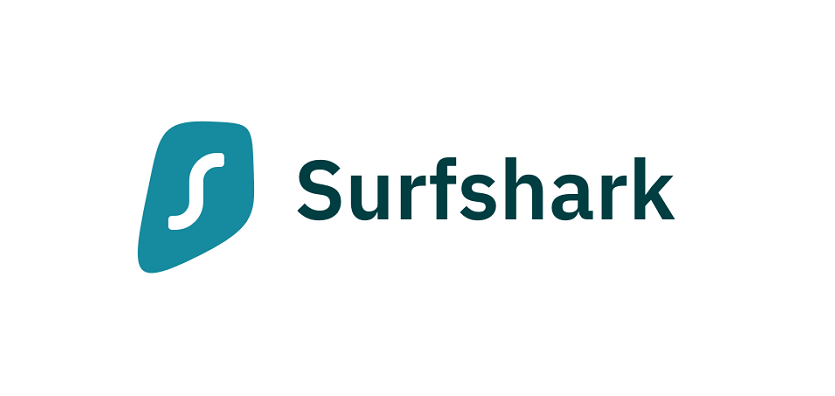Do hackers use VPNs to hide themselves like everybody else?

“Do hackers use VPNs to hide themselves like everybody else? Virtual Private Networks, or VPNs, have become indispensable tools for anyone looking for online privacy and protection in the current digital era. VPNs provide a multitude of advantages for regular users, ranging from eliminating regional restrictions to safeguarding confidential data. But hackers who want to hide their identities and actions also use VPNs, in addition to law-abiding citizens.”
VPNs are used for anonymity by both regular users and hackers, albeit their goals may be different. The majority of VPN users use them to shield their data from online risks, but hackers also use them to conceal their identities, evade detection, and change their location. Given this overlap, it begs the question: How do hackers utilize VPNs differently than the general public?
How Hackers Use VPNs for Anonymity
- Avoiding IP Tracking
The main purpose of VPNs for hackers is to hide their true IP address so that it is harder to link their actions to their actual location. Hackers can gain an additional degree of anonymity by making it appear as though they are operating from a different location or nation by channeling their internet traffic through a VPN server. - Bypassing Surveillance
VPNs are used by hackers as a means of avoiding corporate, governmental, and cybersecurity professional surveillance. Particularly in nations with stringent internet rules, VPNs assist hackers in getting around surveillance equipment, making it difficult for authorities or companies to identify and track their activities. - Encrypted Communication
All data going through VPNs is encrypted, protecting hackers’ communications from prying eyes. Anyone trying to collect and decode sensitive data will find it considerably more difficult to do so thanks to this encryption, including government enforcement, internet service providers, and hackers targeting other hackers.
Do Hackers Use VPNs Differently?
- Layered Anonymity
Hackers frequently use more than just a VPN; in order to achieve various levels of anonymity, they make use of extra technologies like Tor and proxies. Hackers add extra levels of protection to evade discovery by utilizing multi-hop VPNs, which route communication through numerous servers in different locations, or combining a VPN with the Tor network. This tactic, referred to as “layered anonymity,” makes it incredibly difficult to track down their internet activities. - Stealth VPNs
Stealth VPNs, which have obfuscation capabilities meant to make VPN traffic look like conventional internet traffic, are preferred by some hackers. These VPNs are especially helpful for getting around infrastructure that detects and blocks VPN usage, such corporate networks that forbid VPN access or government firewalls. Because of this, hackers are able to continue their operations without being detected. - Private vs. Public VPNs
Free or public VPNs are usually avoided by hackers because of security issues and the possibility of data logging. Rather, they like premium VPNs that come with robust privacy features, like an uncompromising no-logs policy that guarantees the VPN provider doesn’t keep any tracks of user activity. Paid VPNs are the best option for preserving anonymity and evading surveillance since they frequently provide greater encryption, quicker connections, and more sophisticated privacy protections.
VPN Features Hackers Seek
- No-Logs Policy
VPNs with a rigorous no-logs policy, which guarantees that the VPN service does not keep or share any data about customers’ online activities, are given preference by hackers. Since there is no trace of their surfing history or connection information that might be given to authorities or intercepted, this feature is essential for preserving anonymity. - High-Level Encryption
To safeguard their data from interception and decryption, hackers seek VPNs that offer high-level encryption, such as AES-256. This advanced encryption standard is known for its robustness and is widely used to protect sensitive data. Strong encryption ensures that even if data is intercepted, it remains unreadable and secure. - Multi-Hop and Kill Switch
Multi-Hop: Hackers often use VPNs with multi-hop capabilities, which route their traffic through multiple VPN servers in different locations. This adds additional layers of protection by obscuring their origin and making it more difficult to trace their activities. Kill Switch: A kill switch is a feature that automatically disconnects the user from the internet if the VPN connection drops. This prevents their real IP address and other sensitive data from being exposed during unexpected disconnections, thus maintaining continuous anonymity and security.
Why Some Hackers Avoid Free VPNs
Slow Performance
Free VPNs typically have limited server options, slower connection speeds, and bandwidth restrictions. These limitations can be frustrating for any user, but especially for hackers who need fast and reliable connections to execute their operations. Paid VPNs, by contrast, offer higher performance, more servers, and better reliability, which is essential for maintaining seamless anonymity.
Security Risks
Free VPNs often come with significant security vulnerabilities, such as weaker encryption protocols and inadequate protection against data leaks. Since free VPN services have limited resources, they may not invest in the same level of security features as paid services, making users more susceptible to attacks and monitoring.
Lack of Anonymity
Many free VPNs track user activity and may even sell this data to third parties, including advertisers or governments. For hackers who rely on anonymity, this practice is a major red flag. The lack of a strict no-logs policy in free VPNs poses a serious risk, as the service might keep records that could be accessed by authorities.
Other Tools Hackers Combine with VPNs
- Tor Network
Hackers often combine VPNs with the Tor network for enhanced anonymity. Tor routes internet traffic through multiple servers (nodes) across the globe, making it nearly impossible to trace the origin of the traffic. When used alongside a VPN, the combination adds multiple layers of encryption, further obfuscating the hacker’s identity and location. - SOCKS5 Proxy
Another tool hackers use is a SOCKS5 proxy, which acts as an intermediary between the user and the internet. This proxy adds an extra layer of anonymity by hiding the user’s IP address and enabling them to appear as though they are browsing from a different location. Combining SOCKS5 with a VPN can further mask online activities, providing a more anonymous browsing experience. - Virtual Private Servers (VPS)
Hackers may also use Virtual Private Servers (VPS) to host their own VPNs. This approach gives them full control over their VPN infrastructure, allowing them to configure the server for maximum privacy and performance. By hosting a VPN on a private server, hackers can avoid the limitations or potential risks of using third-party VPN providers.
Case Study: Hackers Using VPNs for Anonymity
Overview
In 2019, a notorious hacking group known as APT10, linked to China, used advanced VPN strategies to carry out a massive global cyber-espionage campaign. They targeted managed IT service providers (MSPs) across various industries, stealing intellectual property and sensitive data from multiple organizations. The case illustrates how hackers strategically use VPNs, alongside other tools, to hide their tracks and execute large-scale attacks while evading detection.
How APT10 Used VPNs
APT10 used VPNs to mask their true locations and disguise their IP addresses, allowing them to operate from unknown, seemingly safe regions. This enabled them to:
- Avoid IP Tracking: By routing their internet traffic through VPN servers in different countries, the group prevented security teams and law enforcement from tracing their true geographical locations.
- Evade Surveillance: The use of VPNs allowed APT10 to avoid detection by national security agencies and bypass government surveillance systems in targeted countries.
- Encrypted Communication: APT10 used VPN encryption to protect their communication with command-and-control servers, ensuring that their conversations and data exfiltration were hidden from network security monitors.
Layered Anonymity in the Attack
APT10 didn’t rely solely on VPNs for anonymity. They layered their approach by combining VPNs with other tools such as:
- Tor Network: This added another layer of anonymity by routing traffic through multiple relays in different parts of the world, further obscuring their origin.
- Proxies and Multi-Hop VPNs: They used proxies and multi-hop VPNs to make their operations even harder to track. These methods rerouted their traffic through several VPN servers in different countries, making it almost impossible to trace them back to a single location.
Free vs. Paid VPNs
APT10 avoided free VPNs due to the security risks they pose, such as data logging or sharing with third parties. Instead, they used paid VPNs that had strict no-logs policies and high-level encryption (like AES-256), ensuring that their activities left no trace and that data remained secure.
VPN Limitations
Despite the group’s extensive use of VPNs, they were eventually tracked down through sophisticated detection methods, which combined:
- Behavioral Analysis: Security experts noticed abnormal traffic patterns and activities across multiple MSP networks.
- Collaboration Between Authorities: International law enforcement agencies collaborated to share information and track the group, proving that even with advanced VPN usage, long-term anonymity is difficult to maintain when faced with coordinated global efforts.
Real-World Outcome
After a thorough investigation, the U.S. Department of Justice indicted two members of APT10 in 2018. Their VPN-based anonymity was not enough to protect them from eventual exposure and legal action. However, their use of VPNs allowed them to operate undetected for years, causing significant damage before they were caught.
Final Thoughts
This case study highlights how hackers like APT10 use VPNs as a key tool for anonymity, but also shows that VPNs alone are not foolproof. While they provide substantial protection and make it more difficult to track online activities, sophisticated detection methods can still expose hackers, especially when combined with other cybersecurity measures and international cooperation. The case also underscores the importance of layering privacy tools to maximize security, a practice common among hackers but also beneficial for anyone seeking enhanced online privacy.
How Can VPN Providers Improve Their Services to Prevent Abuse?
VPN providers can enhance their services to prevent abuse while maintaining strong privacy protections for legitimate users. Here are several strategies they can implement:
1. Implementing Enhanced Security Measures
- Advanced Encryption Protocols: Use the latest and most secure encryption standards, such as AES-256, to ensure that data transmitted through the VPN is protected from unauthorized access.
- Multi-Factor Authentication (MFA): Require MFA for user logins to add an extra layer of security, making it harder for unauthorized individuals to gain access.
2. Developing Robust Abuse Detection Systems
- Traffic Analysis: Implement tools that analyze traffic patterns to detect and flag unusual or suspicious activity, such as a sudden spike in data usage or connection requests from multiple locations.
- Machine Learning: Use machine learning algorithms to identify and respond to patterns of abuse or fraudulent activities in real-time.
3. Implementing Usage Policies and Monitoring
- Clear Terms of Service: Define and communicate acceptable use policies clearly, specifying prohibited activities such as illegal content distribution or hacking.
- Selective Logging: Consider implementing minimal logging practices that balance privacy with the ability to track and investigate abuse if necessary.
4. Enhancing Transparency and User Awareness
- Transparent Privacy Policies: Provide clear and transparent privacy policies outlining how user data is handled, including details on any data retention practices.
- User Education: Educate users about responsible VPN use and the potential consequences of violating terms of service.
5. Offering Advanced Anonymity Features
- Obfuscation Technologies: Develop and integrate technologies that make VPN traffic less detectable, such as obfuscated servers that disguise VPN traffic to prevent detection.
- Stealth Modes: Implement stealth modes or “camouflage” features that make VPN usage less obvious to third parties, including governments and ISPs.
6. Collaborating with Law Enforcement and Legal Authorities
- Compliance with Legal Requests: Establish protocols for cooperating with law enforcement agencies when presented with valid legal requests, while protecting user privacy to the fullest extent possible.
- Data Retention Policies: Define clear data retention policies that align with legal requirements and ensure that any retained data is handled securely.
7. Regular Security Audits and Vulnerability Testing
- Third-Party Audits: Engage independent third-party auditors to conduct regular security audits and vulnerability assessments to identify and address potential weaknesses in the VPN service.
- Penetration Testing: Perform regular penetration testing to simulate attacks and identify vulnerabilities that could be exploited by malicious actors.
8. Maintaining Ethical Standards and Integrity
- Ethical Guidelines: Develop and adhere to ethical guidelines for handling user data and addressing abuse, ensuring that privacy and security are maintained without compromising legal and moral standards.
- Accountability Measures: Establish mechanisms for accountability and reporting to ensure that the VPN provider is held responsible for maintaining high ethical standards.
9. User-Friendly Reporting Mechanisms
- Abuse Reporting Tools: Provide users with easy-to-use tools for reporting abuse or suspicious activity, enabling the VPN provider to take swift action against violators.
- Responsive Support: Offer responsive customer support to address user concerns and handle reports of abuse or security incidents effectively.
10. Staying Updated with Industry Trends
- Continuous Improvement: Stay informed about emerging threats and advancements in cybersecurity to continuously update and improve VPN services.
- Adapting to New Regulations: Adapt to changing legal and regulatory environments to ensure compliance and effective prevention of abuse.
Do Hackers Fully Rely on VPNs?

- Limitations of VPNs
While VPNs provide a strong layer of anonymity, they do not guarantee total invisibility online. Hackers are aware that VPNs alone cannot fully protect them from sophisticated tracking methods or surveillance. To mitigate this, they often combine VPNs with other tools like Tor, proxies, and encrypted communication platforms to create multiple layers of security and anonymity. - Possible VPN Vulnerabilities
Even high-quality VPNs can be compromised by security leaks, misconfigurations, or vulnerabilities in the underlying technology. DNS leaks, WebRTC leaks, or improper kill switch functionality can expose a hacker’s real IP address. Additionally, VPN providers may cooperate with authorities under legal pressure, which could lead to the disclosure of logs or other information. As a result, hackers are cautious about relying solely on VPNs and often seek more robust privacy solutions.
Conclusion
In conclusion, hackers utilize VPNs in a similar way to ordinary users, but with more caution and skill. To keep their actions anonymous, they use VPNs to encrypt conversations, hide their IP addresses, and avoid being watched. In contrast to regular VPN users, hackers frequently employ multi-hop servers, Tor, and proxies in addition to VPNs to increase protection.
Although VPNs are crucial for maintaining privacy, hackers are aware of their drawbacks. They are aware that VPNs by themselves cannot provide complete anonymity and may not be able to comply with all regulatory requirements. Because of this, hackers are pickier about the VPNs they use, giving top priority to attributes like sophisticated encryption and no-logs rules. They also frequently pair VPNs with extra privacy tools to further strengthen their defenses.
Read more: Microsoft Exchange Server vs Kolab: Which Platform is Best?
Read more: AppDynamics vs Splunk: A Comprehensive Comparison
FAQs: Do Hackers Use VPNs to Hide Themselves Like Everybody Else?
Why do hackers use VPNs?
Hackers use VPNs to hide their real IP addresses, encrypt their internet traffic, and avoid detection from law enforcement and security teams.
Do hackers only use VPNs to stay anonymous?
No, hackers often combine VPNs with other tools like the Tor network, proxies, or multi-hop VPNs for added layers of anonymity and security.
Can VPNs completely protect hackers from being caught?
While VPNs make it harder to trace hackers, they are not foolproof. Law enforcement can sometimes track them down using advanced techniques and through cooperation with VPN providers or analyzing behavioral patterns.
Do hackers prefer free or paid VPNs?
Hackers usually avoid free VPNs due to the lack of security and privacy. They prefer paid VPNs with strict no-logs policies and high-level encryption.
Can hackers still be identified if they use VPNs?
In some cases, hackers can be identified despite using VPNs, especially if the VPN leaks data, is compromised, or if law enforcement agencies work together to track down suspicious activity.
What additional tools do hackers use with VPNs for privacy?
Hackers often use tools like Tor, proxies, or Virtual Private Servers (VPS) alongside VPNs to enhance their anonymity and reduce the risk of being tracked.
Are all VPNs effective in protecting hackers’ identities?
Not all VPNs offer the same level of protection. Hackers typically choose VPNs with robust encryption, no-logs policies, and extra security features like multi-hop routing to safeguard their identity.
Do hackers use VPNs differently from regular users?
Yes, hackers often take extra steps, such as using stealth VPNs with obfuscation, combining VPNs with Tor, or using multiple VPN layers, which differ from the average user’s VPN usage.
How do law enforcement agencies track hackers who use VPNs?
Agencies use various methods, such as behavioral analysis, tracking VPN vulnerabilities, collaborating with VPN providers, and using legal means to trace users’ activities.
What are stealth VPNs, and why do hackers use them?
Stealth VPNs hide the fact that a VPN is being used by making the traffic look like regular internet traffic. Hackers use them to bypass VPN detection systems and remain more anonymous online.
Loading newsletter form...






